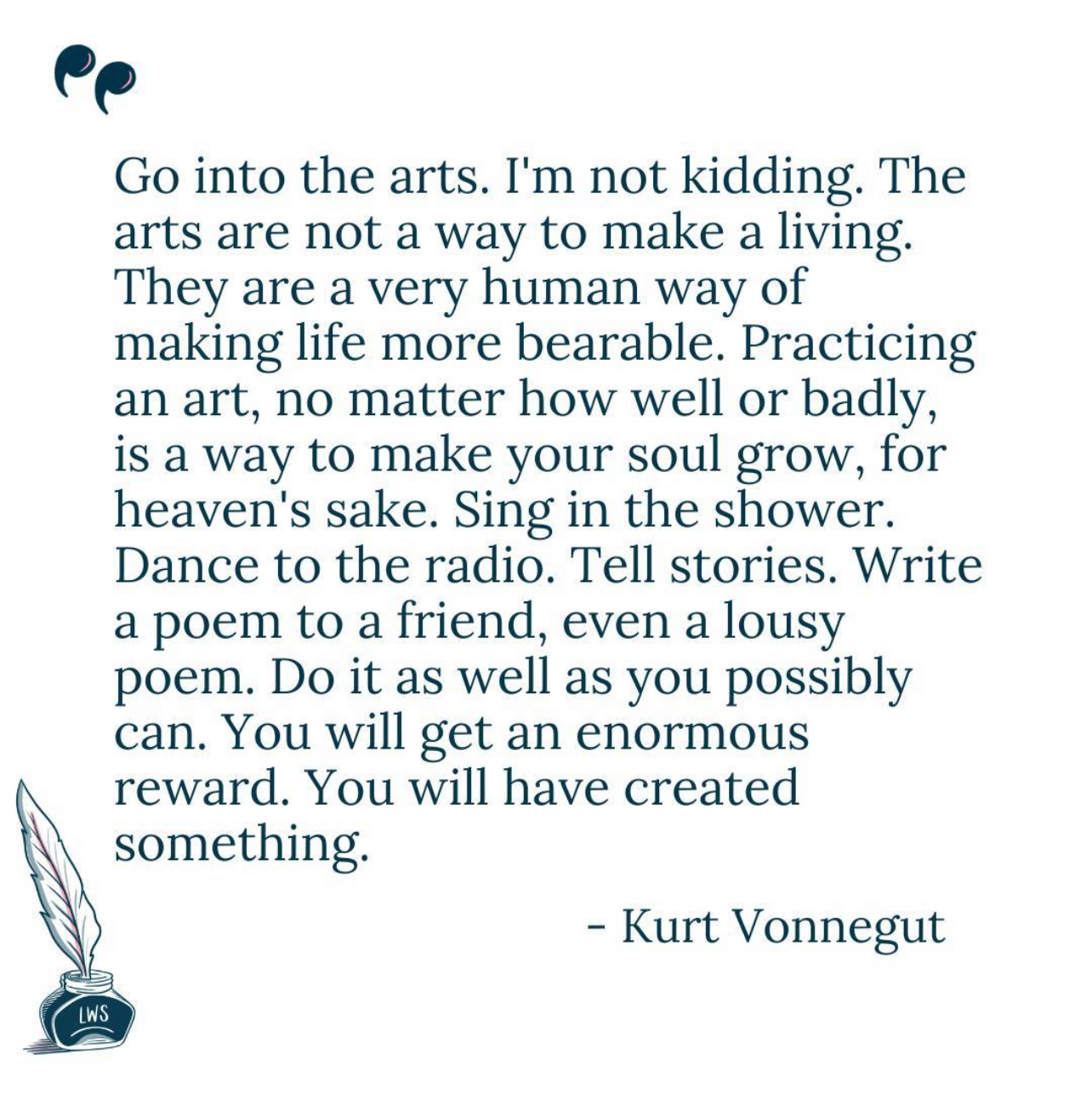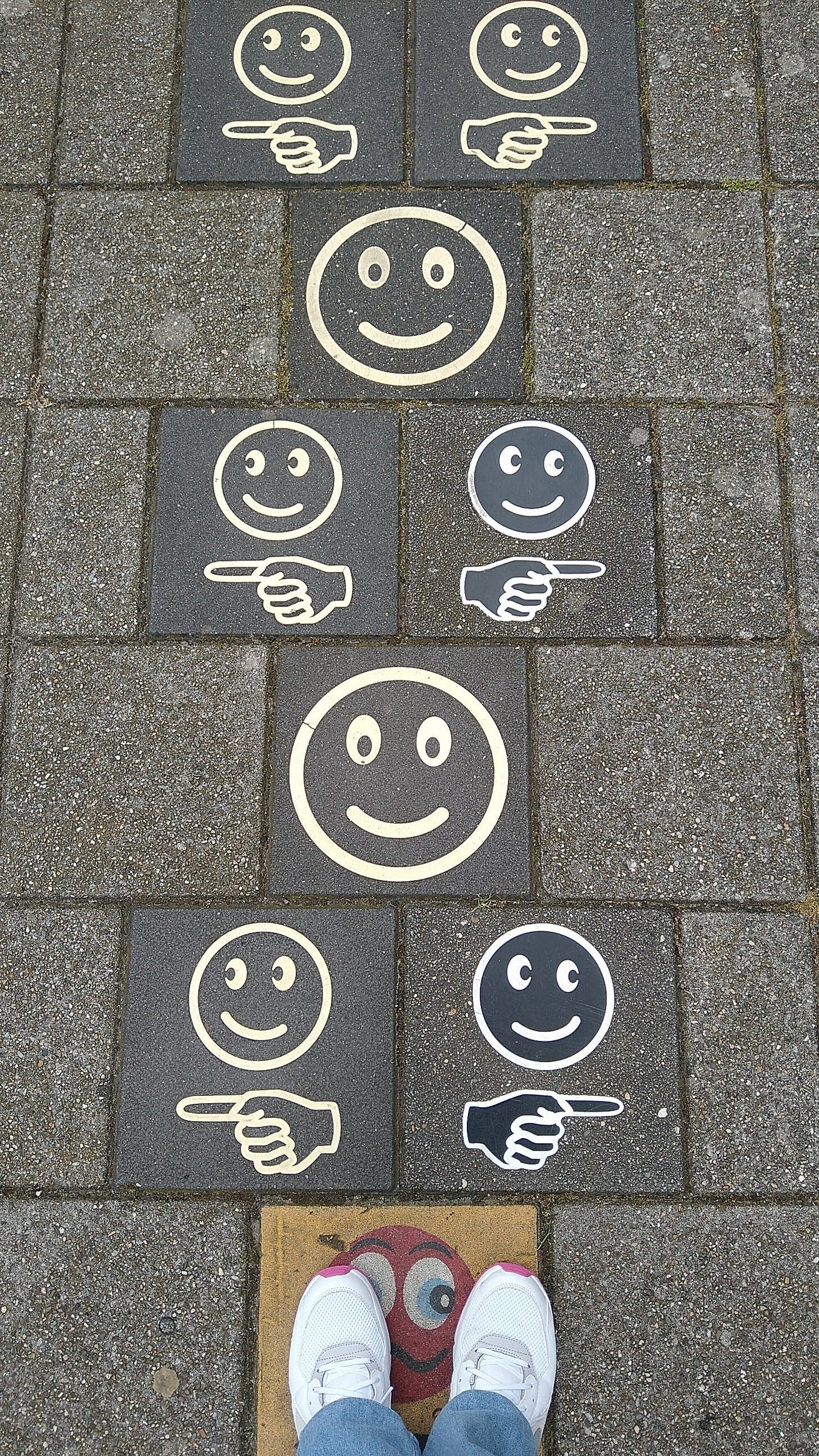On Recalibrating Your Ambition
Applying Your Time & Energy to Authentic Aspirations
Thank you for reading And Also, a weekly newsletter featuring personal stories and things I've learned to help you navigate life ✨!
With high school M, I was sweet and easygoing.
With college M, I was more of a party girl.
With C, I was artsy and philosophical.
And with A, I was cosplaying adulthood.
With U, I was the broken girl who thought she needed saving.
With J, I was (and often still am!) independent; so damn determined to save myself.
It’s not that none of these caricatures was actually me; it wasn’t entirely inauthentic — but it wasn’t always genuine either. It certainly wasn’t all of who I was or wanted to be.
I was shapeshifting; applying a hypervigilant attention to what was wanted from me, what was needed of me, what got me more attention, affection, love . . . so I could play up those parts of myself and give these boys, these men, what I thought would prove my worth to them.
It’s not really about them though; it’s about how my behavior around them indicated the underlying driver of my ambition for many years: How can I be good enough for you?
A little over 10 years ago, in the late spring days of 2014, I sat on the patio of Maximiliano (a delicious Italian restaurant in Highland Park, California, that has sadly since shuttered) with my then-husband, complaining for the umpteenth time about the endless hours I was putting in to do work I didn’t love; work I wasn’t even particularly proud of, but that seemed to be a required next step in my career.
After presumably (and understandably) becoming frustrated with my grumbling, he suggested that I could just stop doing it; I could stop putting my energy into all of those endless hours. Over a bowl of tagliatelle, we made a plan for me to quit and begin my work as a freelance copywriter.
That plan became unsustainable (as it might’ve been for many from the start) when we separated two and half years later. I went back into the 9-to-5 world by necessity — I needed the financial, mental, and emotional stability that I felt only a bi-weekly paycheck and health benefits could provide. (To be fair, they did.)
Back in the corporate world, I told myself that this was work to pay my bills, not to feed my passions; I would do that on my own time. But no matter the caliber of the company, the camaraderie of the team, the (good) challenges of the job — with each new role, what was asked of me (and of my colleagues) was an investment of my time, energy, and mental capacity that didn’t leave room for the pursuit of much else.
With each new job, I found myself filling my waking hours focused on the next rung of the ladder: Yes, check off everything on the to-do list and begin working on the to-dos toward that next big role. Because it’s never enough to be doing what you’re doing, right? To be earning what you’re earning? A new goal is always the goal; there is always a new level — an achievement just out of reach — to aspire to.
In her new book, The Myth of Making It, Samhita Mukhopadhyay writes: “The widespread belief is that you must always hustle—both at work and in your all-but-necessary side hustles—and to keep you hustling, you need to be kept hungry, metaphorically and literally.” In other words, you must always have your eye on the prize; on some ambition ahead of you that is modeled after exactly who and what someone else needs you to be and do — in order to even survive where you’re at.
Admittedly, I sometimes feel pangs of inadequacy when I see peers’ C-level titles on LinkedIn. I occasionally look through job listings for higher-level roles where I know I would perform well — and that I know might also offer me even more of the respect, esteem, and income I desire. I also often enjoy and definitely appreciate the work I put into the job I have now, which is more than many can say. It’s tough to untangle something not so clear-cut — what part of my ambition should be spent working toward what matters most to me? And what part should I set aside in service of someone or something else, especially when it contributes to my ability to exist in this world? Do we have much choice in the matter?
What part of my ambition should be spent working toward what actually matters to me? And what part should I set aside in service of someone or something else if it contributes to my ability to exist in this world?
And maybe workplace ambition is aligned for you. I have no doubt there are people who strive to lead big companies and sit on Boards of Directors and manage large teams from a place of authentic aspiration. The prototypical career ladder has all the right rungs for them, and they simply have to climb. (I know, I know, it’s actually never all that simple — especially for women and people of color!) All that is to say, I don’t automatically consider channeling your ambition into traditional career advancement as being wrong. It’s just lately I’ve wondered how right it is for me.
Don’t get me wrong: I love a goal, I pride myself on my ambition, and I do good work. I always have, which is perhaps why it has been so easy for me to slip into putting that energy toward others’ aims for me. All of the times I’ve scanned my environment, my relationships, my jobs, looking for ways I could change into who somebody else wanted me to be, aligned so well with my own preternatural enthusiasm for accomplishing things! For capitalism!
“. . . a hustle mentality is not without merit,” says Samhita in The Myth of Making It. “Often, it helps with the goals you may have set for yourself. There is still a need to find our ‘margin of maneuverability’: the space between the realities we face and what is possible within them.”
In an interview with fellow author, Liz Plank, she continues: “I don't think us not having ambitions would be a win, per se, but I do think the part that could really be a win is for us to recalibrate what our ambition needs to lead to, to reconsider what success looks like, and to be comfortable with a version of it that might not be so self-sacrificing.”
While I can’t yet imagine a world in which we don’t sometimes have to do work we don’t want to do; in which we don’t have to strive toward things that aren’t entirely aligned with what we desire simply because that is how we’ll survive — I can imagine becoming more clear on what I actually want and who I actually am.
I can imagine boldly claiming more of my natural ambition for my own aspirations.
I can imagine redistributing some of my creative power to the projects that make me come alive and positively impact other people.
I can imagine a new underlying driver of my ambition: How can I be good enough for me?
And I can imagine rising to meet myself there.
Idea: I’m always intrigued by people who say they don’t “believe” in setting goals (usually musings from the contrarian crowd around the first of the year). Sure, it’s possible that it’s not your thing and you prefer to move through life, not anchored in any particular intention; just living. But I wonder how much this feeling of goal indifference is rooted in our collective idea of what goal-setting has to be — that it means you have to lose a certain percentage of your body weight or hit a convoluted KPI or reach an arbitrary milestone by a certain age. Because who would find that particularly motivating?! Some people, maybe — but likely only because their ambition is misaligned; because it’s so closely tied to other people’s expectations. What if you set goals that actually reflected what you really wanted? What if you had a goal to spend a certain amount of time with your kids every day? What if you had a goal to read a list of books that inspire you as a writer? What if you had a goal to share your photography (or poetry or dance) on Instagram every week, so someone else could witness the work you really want to put out into the world? What if your goals were grounded in who you actually want to be and what you actually want to do? What if your ambition was entirely for you? (P.S. If you want to know how to start setting goals like that, check out the Summer 2024 Goal-Setting Session I hosted last month!)
Anecdote: Yesterday, as I was editing this essay, one of my colleagues randomly sent me the quote below from Kurt Vonnegut. “Made me think of you!” he said. “Always inspired by the things you’re creating inside and outside of work!!!” He had no way of knowing what I was writing about today, or how meaningful it would be to be acknowledged for the ways I’ve already recalibrated my ambition; for the ways people can see me put my energy toward the things that really matter to me. If you’re reading this, W: Thanks for the encouragement. It made my day 💛
Inspiration: “Go into the arts. I’m not kidding. The arts are not a way to make a living. They are a very human way of making life more bearable. Practicing an art, no matter how well or badly, is a way to make your soul grow, for heaven’s sake. Sing in the shower. Dance to the radio. Tell stories. Write a poem to a friend, even a lousy poem. Do it as well as you possibly can. You will get an enormous reward. You will have created something.” - Kurt Vonnegut








I'm really looking forward to reading this book. It loosely sounds like the antidote to Lean In, which personally made me mad. Ha!
I do know it's all very nuanced. Love reading your measured take on ambition. The way it can be necessary, helpful, manipulative (at times). The way you are always able to check in with yourself and pivot/ grow so fast inspires me :)
Hi Jenna—this is such a thought-provoking prompt! As someone who identifies with being a hard-worker, I’ve grappled with feeling more detached from my career as of late. I love this reframing of ambition, where I’m putting it, and how it serves me.
P.S. Found your newsletter via the Morning Person chat; I also attended Leslie’s talk at Powell’s 🙃 Looking forward to following along!